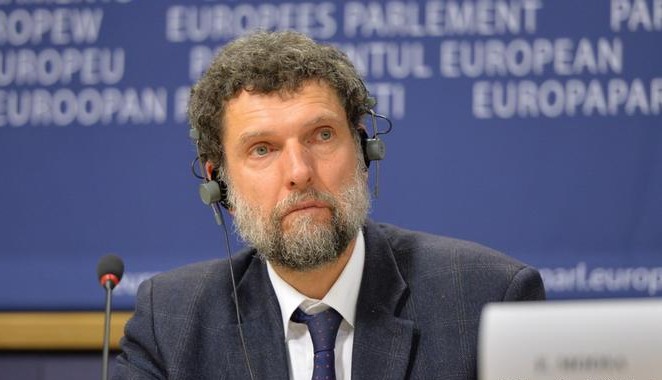The Committee of Ministers of the Council of Europe (CoE) is considering appointing a “contact group” comprising “permanent representatives” to visit Ankara to “impress upon Turkish authorities how vital it is to comply” with a European Court of Human Rights (ECtHR) ruling on the detention of businessman and philanthropist Osman Kavala, Thomas Byrne, the minister for European Affairs of Ireland, which currently holds the six-month Presidency of the Committee of Ministers, said on Wednesday.
Turkey has refused to release Kavala despite the 2019 ECtHR ruling that found his detention was in pursuance of an “ulterior motive,” that of silencing him as a human rights defender. The non-implementation of the ruling prompted the Committee of Ministers to launch an infringement procedure against Turkey in February, which is still ongoing.
Byrne said during a speech he gave at the plenary session of the Parliamentary Assembly of the Council of Europe (PACE) that the Committee of Ministers treats Turkey’s “continuing failure, as a Party to the Convention, to implement the judgment of the Court and release Mr Osman Kavala” seriously.
He said he raised the issue with Turkish Deputy Foreign Minister Faruk Kaymakcı in August and that Ireland’s minister for Foreign Affairs, Simon Coveney, did the same when he met with Turkish Foreign Minister Mevlüt Çavuşoğlu in New York two weeks ago.
“The Committee of Ministers continues to monitor the case very closely.
And, following the Presidency’s exchanges with the Turkish government last week, discussions took place to appoint a contact group, comprising Permanent Representatives, to visit Ankara to impress upon Turkish authorities how vital it is to comply with the court’s ruling. It’s really, really important,” Byrne said.
An İstanbul court on April 25 sentenced Kavala to aggravated life and his co-defendants to 18 years each on charges of instigating the anti-government Gezi Park protests in 2013, sparking protests from governments around the world, including the United States, Germany and France, and NGOs such as Amnesty International.

